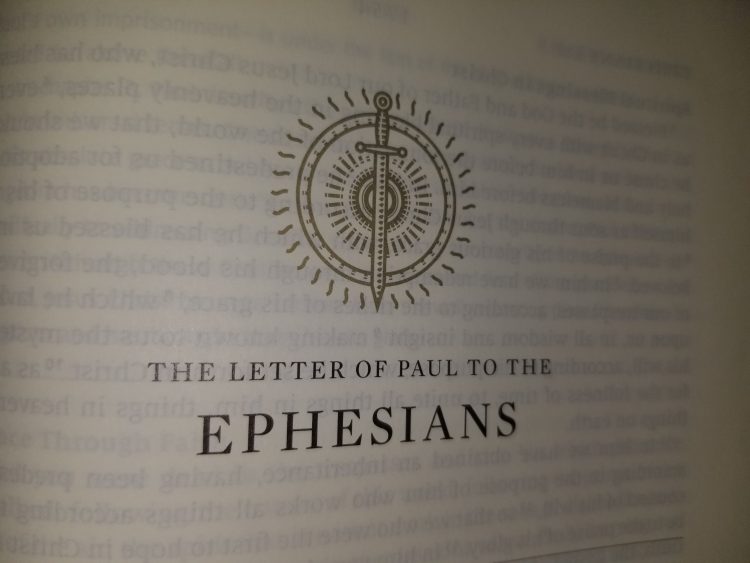⏱️ Estimated Reading Time: 8 min read
“For we are his workmanship, created in Christ Jesus for good works, which God prepared beforehand, that we should walk in them” (Ephesians 2:10).
By the grace of God, Paul masterfully displays in Ephesians 1:1-9 how every Christian and the body of Christ as a whole is the workmanship of God in Christ. Then in verse 10, he takes us deeper into the overflowing mercy of God by helping us understand how the good works of every Christian and the body of Christ as a whole are related to the grace that saved us. So, let’s begin by considering the fact that we were created in Christ for good works, and then let’s ponder what it means to say that God prepared our good works beforehand.
Christians Are Created for Good Works
What does Paul mean when he says that we’ve been created for “good works”? The phrase “good works” appears thirteen times in the New Testament and it refers to things like these: teaching the Word of God to believers, sharing the good news of Jesus Christ with non-believers, healing the sick, touching the untouchables, helping the poor, raising children well, visiting those in prison, showing hospitality to friends and strangers, serving fellow Christians in a variety of ways, caring for the afflicted, sharing our financial resources with those in need, and helping in cases of urgent need (1 Timothy 5:10; John 10:32; Acts 9:36; 1 Timothy 6:18; Titus 3:14).
Good works come in many varieties but here’s what they all share in common: good works are the outward manifestation of the inward reality that we belong to Christ, that we’re loved by Christ, and that we love Christ. Or to put it in the terms of Ephesians chapter 2, good works are the visible manifestation of the mercy of God that is pouring through our lives. They are the pipelines through which the mercy of God flows into the world.
Since our good works are a manifestation of the mercy of God, they are meant for the glory of God and not our own. As Jesus said in Matthew 5:16: “In the same way, let your light shine before others that they may see your good works and give glory to your Father who is in heaven.” This is why Paul says elsewhere that the proper adornment for Christian people is good works (1 Timothy 2:10). When we woke up this morning, every one of us gave some thought to what we should wear and then we did what we had to do to adorn ourselves for the day. While there’s nothing wrong with this, the Bible says that we should strive all the more to clothe ourselves with love and good works, that we should concern ourselves with being like and acting like our Father who is in heaven. This is the proper adornment for the Christian because it is the God-ordained display of his presence in our lives.
Friends, please hear the voice of our heavenly Father—we were “created in Christ Jesus for good works” (Ephesians 2:10). The purpose of our salvation is to display the glory of God, empowered by the grace of God, by walking in the works which God prepared before the foundation of the world.
God Prepared the Good Works of Christians
Now that we understand a bit more about how good works function in the life of every Christian and the body of Christ as a whole let’s ponder what it means to say that God prepared our good works beforehand. The one Greek word translated “prepared beforehand” is only used twice in the New Testament (Ephesians 2:10; Romans 9:23). While the word itself does not tell us exactly when God created these works, we can infer from texts like Ephesians 1:4 that he did before he even created the world. Paul writes, “…even as he chose us in him before the foundation of the world that we should be holy and blameless before him.” In light of this verse, we should read Ephesians 2:10 like this: “For we are his workmanship, created in Christ Jesus for good works, which God prepared before the foundation of the world that we should walk in them.”
Some Bible scholars suggest that God created us beforehand and not the good works themselves. They argue that God saved us in Christ, filled us with his Holy Spirit, and then sent us into the world to do his will without specifying exactly what we would do. While this makes some sense, it’s divorced from what Paul says in this text. You don’t need to know Greek to see that the phrase “prepared beforehand” refers not to the people of God but to the good works they were sent into the world to do. The idea is simply inescapable: God is ultimately responsible for all of our good works in Christ Jesus.
Even so, this leaves us with a troubling question: when we win the lost or pray for the sick or clothe the naked or visit those in prison, are we choosing to do these things or has God already chosen them for us? Are we just robots or are we worshipers who delight to do the will of our heavenly Father on the earth? On the one hand, Ephesians 2:10 is clear: God is ultimately responsible for the good works we do. On the other hand, the Bible also teaches that we will give an account for our lives and be held responsible for the choices we make, for better or for worse. Since we’re going to be held accountable for our choices, we are indeed responsible for those choices which means that we are not robots.
So, then, although God does fashion our good works for us, he does it in such a way as not to violate our will. Somehow, when we engage in the good works God has prepared for us to do, we do the very thing we want and love to do. It’s just like when we were saved: God is ultimately responsible for our salvation, but when we received him into our lives, we were making a legitimate choice that expressed the desire of our hearts.
Why God’s Sovereignty Over Our Works is Good News
I gladly admit that there is a mystery here: God has a will, we have a will, and when we do good works by his grace and for his glory, both wills are at work. But let me close by sharing three reasons why it’s very good news that God’s will is the dominant one in the equation.
First, God’s sovereignty over our good works is good news because it means that God has a purpose for our lives that cannot be thwarted! Even as God first predestined us for himself and then savingly brought us to himself, so God first predestined our works and then does whatever he must to bring them about. Again, it’s not that we have no part to play or that we can’t resist his gracious work in our lives, but it is that neither our part nor our rebellion has the final word in our lives. God has spoken, God will act in and through us, and who will stop him?
Second, God’s sovereignty over our good works is good news because God has removed the possibility of boasting in ourselves by making himself the author and perfector of our works. It was not enough for God to remove the kind of boasting that would say, “God saw something good in me, and therefore he saved me.” He also had to remove the kind of boasting that would say, “Sure, God is responsible for my salvation, but once I was saved, I made the most of what he gave me and did a lot of great things for him.” If God did not remove the possibility of boating in the root of our salvation and of boasting in the fruit of our salvation, we would boast in both, and the gospel would ultimately be for naught. But since God is zealous for his glory and gracious to his people, he kindly removed both kinds of boasting so that we would learn the joy of boasting in him alone.
Third, God’s sovereignty over our good works is good news because through them we display his super-abundant mercy to the world. If we were the source of our own good works, our good works would be a display of our glory and goodness. But since we are not, they do not! Praise be to God that by his mercy we get to display his mercy for his glory and our common joy.
Friends, let us rejoice in this glorious truth: “For we are his workmanship, created in Christ Jesus for good works, which God prepared beforehand, that we should walk in them” (Ephesians 2:10).




